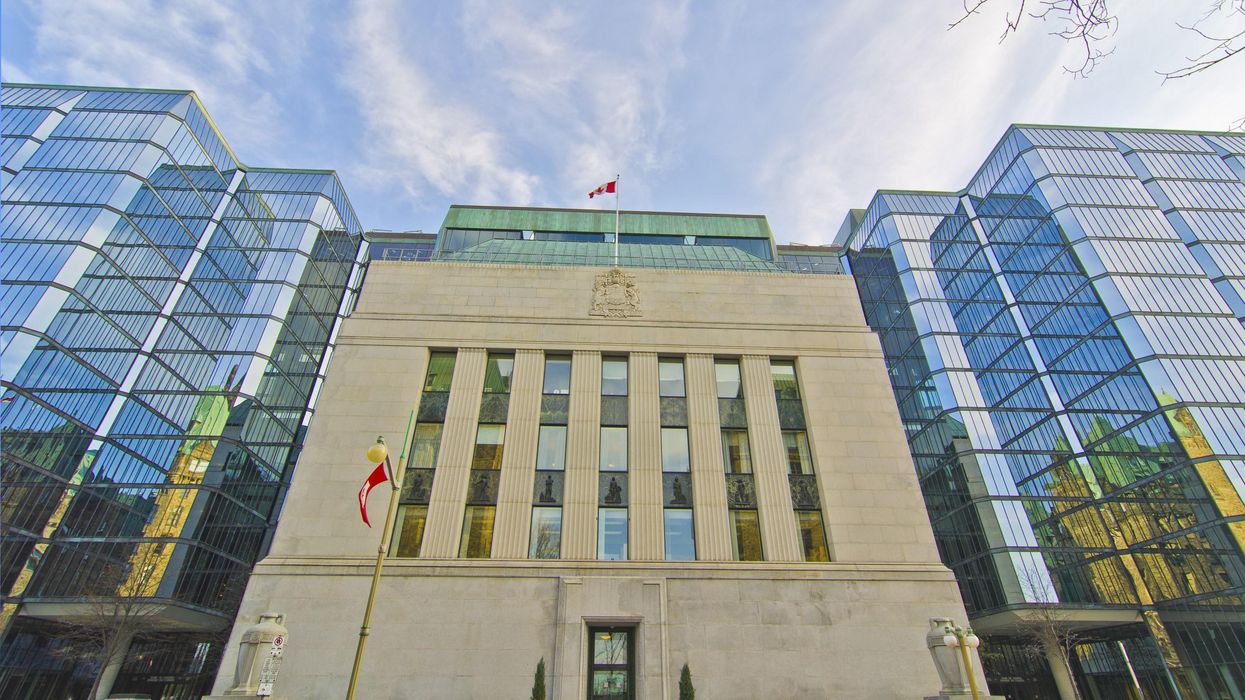The Bank Of Canada Explained Why It's Raising Interests Rates & How This Combats Inflation
It's to cool an "overheated" economy.

The Bank of Canada in Ottawa.
In case you haven't noticed, the Bank of Canada has been increasing the prime interest rate over the last few months in a bid to help ease inflation.
But, how exactly does that work?
Well, the Bank of Canada (BOC) recently published a thread on Twitter breaking down how its strategy of upping the interest rate can help make inflation go down.
The BOC mentions that inflation is heating up because of a lot of factors. Not the least of those is the invasion of Ukraine by Russia, rising fuel costs and global supply chain issues.
But another factor is that the economy is "overheating."
"#COVID19 restrictions are lifted + people want to get back to normal = shortages of workers and goods," said the bank. "Prices tend to go up when the demand for goods and services is more than the [economy] can supply."
This is partly why we're currently experiencing the 7.7% inflation rate, last reported for June.
And so, to start cooling off the overheating market, the Bank of Canada has been rising the prime interest rate.
"Raising #InterestRates causes people and businesses to: 1. stop or slow spending, 2. borrow less, so they buy less," continued the monetary organization.
"Less demand brings the economy back into balance, putting the brakes on inflation," it said.
And with this, the Bank of Canada is saying that it "WILL get inflation back to [their] 2% target."
However, this strategy hasn't eased the financial anxiety felt by some Canadians.
A recent study found that one in four Canadian homeowners might be forced to sell their house if interest rates were to climb any higher.
Additionally, some experts believe continued increases to the prime interest rate to combat inflation will trigger a recession, as it has nearly every other time it's been attempted.
And with at least three more hikes predicted, it seems that at the very least the cost of things like mortgages and other big loans could continue to be high throughout the rest of the year.
This article's cover image was used for illustrative purposes only.
- Canada's Interest Rate Just Jumped By A Whopping 1% & Here's ... ›
- 3 More Interest Rate Hikes Are Coming This Year According To An ... ›
- The Bank Of Canada's Interest Rate Hike Could Cause A Recession ... ›
- Toronto's Housing Market Is Seeing Its Biggest Decline In The 'Past Half A Century' - Narcity ›
- Here's What Canadians Say They'd Do With A 'Surprise Gift' Of $5,000 Right Now - Narcity ›
- Jagmeet Singh Says The Bank Of Canada's Interest Rate Increases Have 'Absolutely No Merit' - Narcity ›
- The Bank Of Canada Has Increased Interest Rates Yet Again & Here's What That Means For 2023 - Narcity ›
- Canada's Interest Rate Has Increased Yet Again & Here's What It Means For Homeowners - Narcity ›